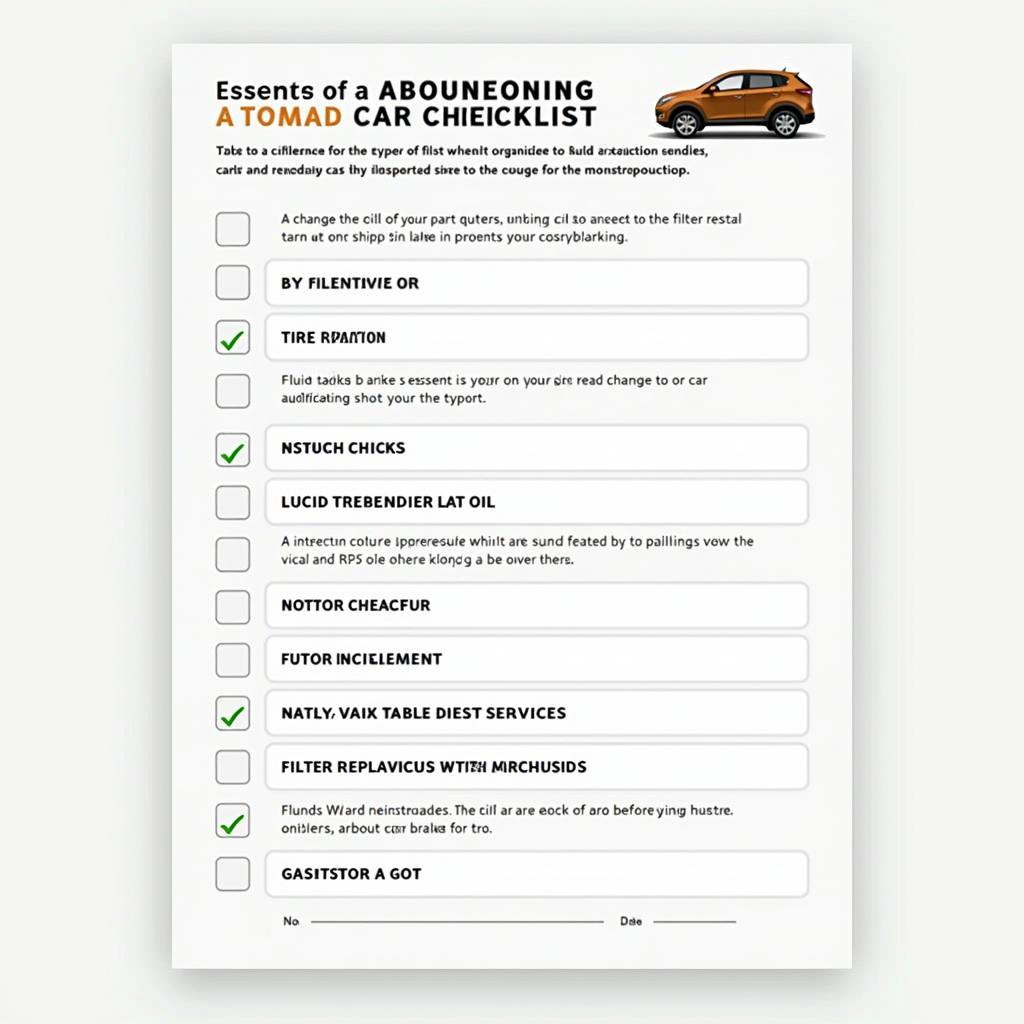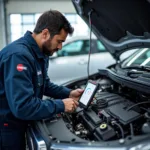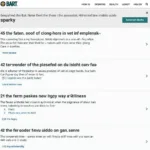Understanding how to make car service a smooth and stress-free experience can save you time, money, and potential headaches down the road. Whether you’re a seasoned car owner or a new driver, this comprehensive guide will provide you with valuable insights and practical tips to make informed decisions about your car’s maintenance.
 Car service checklist
Car service checklist
Understanding Your Car’s Needs
Just like our bodies need regular checkups, cars require routine maintenance to perform optimally. Neglecting these needs can lead to costly repairs and compromise your safety on the road. Here’s how to stay ahead of the curve:
1. Consult Your Owner’s Manual: This often-overlooked treasure trove contains a goldmine of information specific to your car model, outlining recommended service intervals and procedures.
2. Pay Attention to Warning Signs: Your car often communicates its needs through various signs. Be alert to unusual noises, warning lights on the dashboard, fluid leaks, or changes in performance like reduced fuel efficiency or strange vibrations.
3. Factor in Your Driving Habits: Driving conditions and habits impact your car’s wear and tear. Frequent city driving, towing heavy loads, or driving in extreme weather conditions require more frequent servicing.
Choosing the Right Car Service Provider
Finding a reliable and trustworthy car service provider is crucial. Here’s what to consider:
1. Ask for Recommendations: Seek recommendations from friends, family, or online communities for reputable mechanics or service centers in your area.
2. Verify Credentials: Check if the service provider is certified by reputable automotive organizations like the ASE (National Institute for Automotive Service Excellence) or AAA (American Automobile Association).
3. Consider Specialization: If your car requires specialized services like transmission repair or electrical diagnostics, opt for a provider with expertise in that specific area.
4. Compare Quotes: Don’t hesitate to request quotes from multiple service providers to compare pricing and ensure you’re getting a fair deal.
Communicating Effectively with Your Mechanic
Clear communication with your mechanic ensures your car’s needs are met effectively.
1. Be Specific: Clearly describe the symptoms you’ve observed, including when they occur, any unusual sounds or smells, and the duration of the problem.
2. Provide Relevant History: Inform your mechanic about any recent repairs, modifications, or accidents involving your car.
3. Ask Questions: Don’t be afraid to ask for clarifications about the recommended repairs, the estimated cost, and the expected turnaround time.
Conclusion
Mastering the art of how to make car service a seamless process involves understanding your car’s needs, selecting the right service provider, and communicating effectively. By following these guidelines, you can ensure your vehicle receives the best possible care, keeping it running smoothly and safely for miles to come.
FAQs
1. How often should I change my car’s oil?
Consult your owner’s manual for specific recommendations. Generally, it’s advised to change your oil every 3,000 miles or every 3 months, whichever comes first.
2. What does the check engine light mean?
The check engine light can indicate a range of issues, from minor malfunctions to serious engine problems. It’s crucial to have your car diagnosed by a mechanic to identify and address the underlying cause.
3. Can I negotiate car repair costs with my mechanic?
While some mechanics may have fixed prices, others may be open to negotiation, especially for extensive repairs. Don’t hesitate to discuss your budget constraints and explore potential options.
4. Is it essential to use original equipment manufacturer (OEM) parts?
OEM parts are manufactured by the car’s original manufacturer, while aftermarket parts are produced by third-party companies. OEM parts are generally considered to be of higher quality and may come with a warranty; however, aftermarket parts can be a more budget-friendly option.
5. How can I protect my car from rust and corrosion?
Regularly washing and waxing your car, especially during winter months, can help prevent rust and corrosion. Parking your car in a garage or using a car cover can provide additional protection.
Need Help?
Have more questions or need assistance with your car service needs? Contact our team of experts 24/7 via WhatsApp: +1(641)206-8880 or email us at [email protected]. We’re here to help you keep your car running smoothly.

